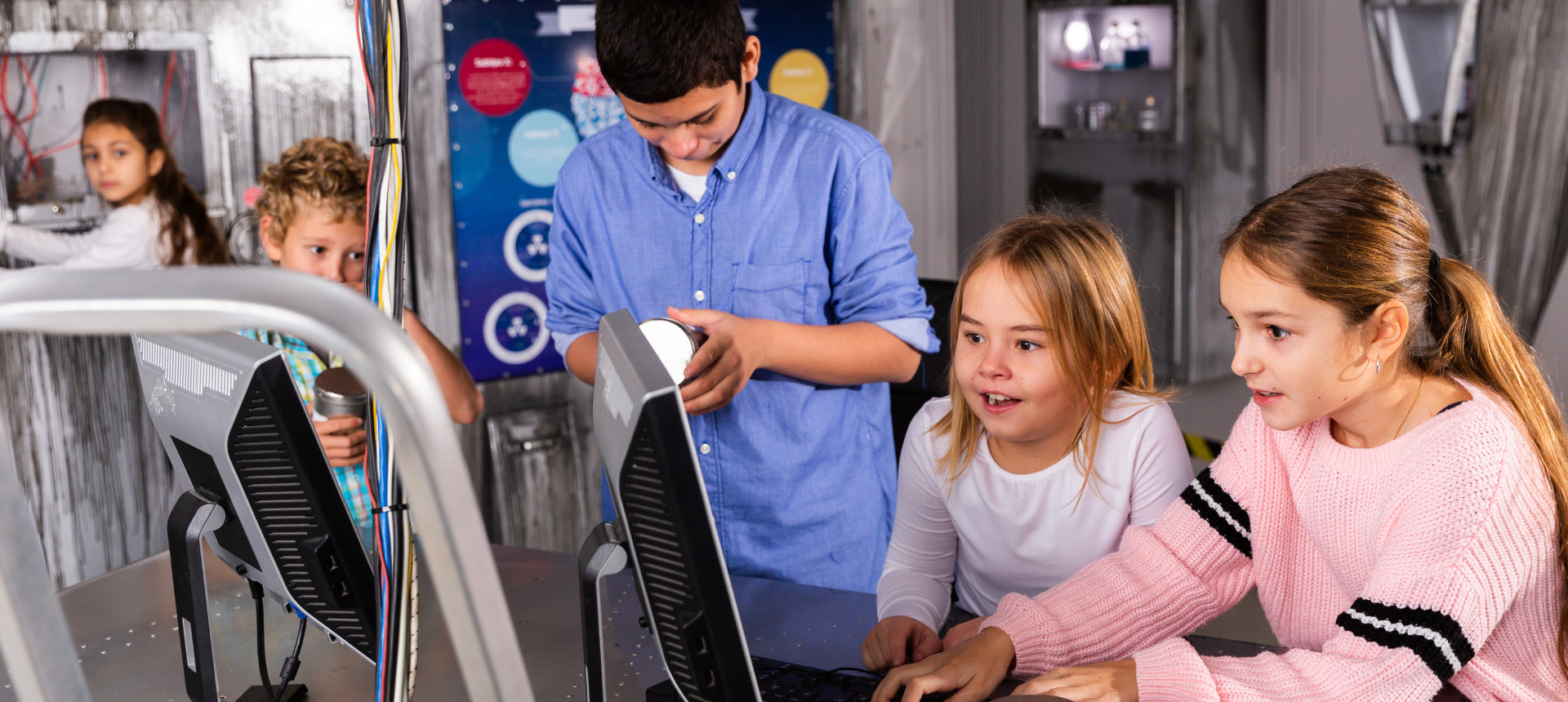Escape rooms are a popular type of class on Outschool. In this article, we explore the 5 top ways online escape room puzzles can support your child's learning at any age.
What are online escape rooms?
Escape rooms are games where the participants are immersed in a challenge that normally involves them being put into a fictitious situation where they have to solve a series of clues to 'escape' the room or predicament they find themselves in. Working together in a team, they move around a room, battling against the clock, to overcome the challenges they face.
Online escape rooms are fairly similar, except they are not done in person, but on Zoom with the scenario and challenges presented on the screen for participants. Participants may be faced with riddles to work out, maths or other challenges, solve puzzles or they may need to search around a virtual room to find clues or accomplish tasks to be able to answer the questions needed in order to crack the code and break out.
How online escape rooms support learning
Scott Nicholson, a professor of game design and development at Wilfrid Laurier University in Ontario, Canada, has said:
"Unlike other forms of games where the player controls an avatar [such as Roblox or Minecraft], escape rooms place the player directly into the game. Because of that, the effects of experiential learning can be more effective, as there are fewer barriers between the player and the experience."
Here are the top 5 ways that online escape room classes can support your child's learning:
1. They immerse learners in an engaging environment of play.
Escape rooms are fun, and they require everyone participating to join in and play along. In that state of play, there is a great opportunity to experience active learning and to enter into a state known as flow, which is a state that people can enter into when they are completely absorbed in what they are doing. In this state of flow, a learner's engagement is normally high and they are able to concentrate more intensely on the task, especially when they get immediate feedback (solving clues correctly) and rewards. They also absorb information and retain it more easily.
2. They can appeal to a wide variety of learning styles
Escape rooms are fun and require out-of-the-box thinking, and are appealing to a wide range of learners because they can each bring their skills and knowledge to the task at hand.
3. They employ and develop lots of different skills
There are many skills that are used and developed while playing online escape rooms. Skills such as information search and furthering content knowledge, critical and analytical thinking, teamwork, leadership skills, communication skills and performing under pressure are all developed in escape room classes, as well as the need to collaborate to solve the clues in order to 'escape'.
4. They can introduce a new topic that then sparks interest for future learning
Every online escape room class has a concept and topic that forms the basis of the experience. When learners come to the class, they may already be familiar with the subject content and are able to consolidate and solidify their knowledge and understanding of it, or it may be something that is completely novel and unfamiliar. While they may just play and enjoy the escape room experience, it can also be a gateway introduction to a deeper or further learning on it, fuelled by the enjoyment of the immersive game they have just played.
5. Learners do not know they're learning
One of the best things about gamified learning in general, and in particular with online escape room classes, is that learners can only achieve the game's goals by achieving the educational goals within the game too. While many escape rooms may appear to be for entertainment purposes only, there will always be a skill or knowledge that is learned either directly or indirectly. More often than not, learners don't perceive this as learning because it seems like they are 'just' simply playing a game.
 Mary Ravenwood, also known as Detective Kitty Kat Meow McFluffy or Ms. Kitty runs The Kitty Kat Detective Agency International on Outschool. Mary is an Outschool educator from the UK who uses escape rooms with a cat theme to engage her learners. Through using the escape room format, she is able to give instructions on how to complete problems and assess that learners have understood and practiced the skill so that they can move on in the game. Also, learning is broken down into manageable chunks which are not overwhelming and she is able to use her skills as a teacher to fill in the gaps as they go.
Mary Ravenwood, also known as Detective Kitty Kat Meow McFluffy or Ms. Kitty runs The Kitty Kat Detective Agency International on Outschool. Mary is an Outschool educator from the UK who uses escape rooms with a cat theme to engage her learners. Through using the escape room format, she is able to give instructions on how to complete problems and assess that learners have understood and practiced the skill so that they can move on in the game. Also, learning is broken down into manageable chunks which are not overwhelming and she is able to use her skills as a teacher to fill in the gaps as they go.
Here's what Mary had to say about escape rooms:
"Escape room mysteries ignite the imagination and inspire curious learners to engage in playful, fun learning. They place the learner at the centre of the adventure and they start to think laterally and critically, using their communication and collaborative group work skills in order to solve puzzles to achieve objectives. I think of it as teaching by stealth; like blending your veg into the pasta sauce. I see learners grow in confidence from being reluctant mathematicians to engaged and enthusiastic learners. Escape rooms can be the vehicle for finding the key to unlocking the potential of learners."
You can see Mary's cat-themed escape rooms and other classes here.
Has your child loved learning through escape rooms? We'd love to hear from you over in our UK Outschool Families community!










